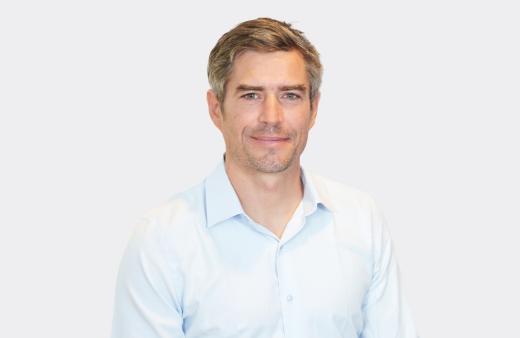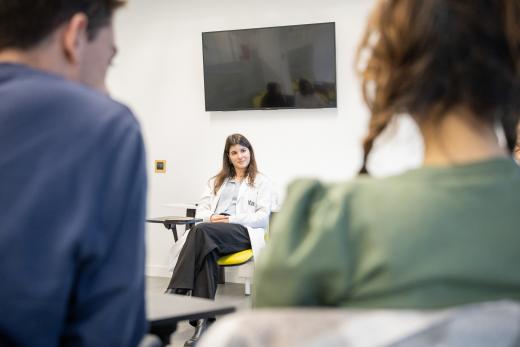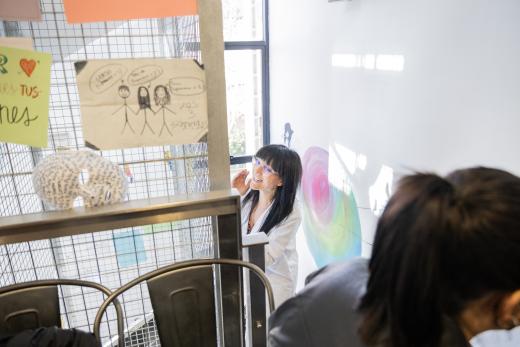How Clariane is responding to the challenge of mental health care in France and more widely in Europe: Professor Antoine Piau’s viewpoint

Summary:
- Mental health: a public health priority
- A greater emphasis on outpatient care: moving towa...
- A psychiatry that is gaining in maturity and preci...
- Clariane’s European expertise: sharing skills and ...
- Innovation at the heart of our strategy
- An ambitious and pragmatic roadmap
- An integrated approach to holistic care
- Early detection: a firm commitment by Clariane
Professor Antoine Piau, Medical, Ethics and Health Innovation Senior Vice President for the Clariane Group, discusses the major challenges posed by the growing demand for mental health care. With more than 84 million people in Europe affected by mental health problems, he emphasises the need for a diversified and personalised approach to respond to the diversity of mental disorders. He also highlights the importance of creating effective mental health networks and fostering collaboration between the public and private sectors. Our approach to care is comprehensive and integrated, with the aim of providing better support for the people we care for who are suffering from mental health conditions.


Mental health: a public health priority
Prof. Antoine Piau: “Mental health is a major issue in France and Europe today. Since the Covid-19 pandemic, the demand for mental health care has continued to grow, highlighting the need to respond effectively to this public health issue. Psychiatric disorders have been on the rise again, but the good news is that barriers to accessing care are gradually coming down, as the stigma fades. However, access to quality care remains a challenge, and it is essential to ensure that all members of the population can benefit from appropriate care, regardless of their socio-cultural level or where they live.”
A greater emphasis on outpatient care: moving towards community-based care
Prof. Antoine Piau: “Traditionally focused on curative care, mental health care in France is gradually evolving towards a greater emphasis on outpatient care. Full hospitalisation is not always the ideal solution, particularly for the elderly, where it can lead to a loss of autonomy. Clariane is fully committed to this shift, focusing on local solutions, day hospital care and approaches that promote patients’ well-being, without systematically resorting to hospitalisation.”
A psychiatry that is gaining in maturity and precision
Prof. Antoine Piau: “Contrary to the popular belief that psychiatric disorders are on the increase, what is really improving is our ability to better diagnose and understand them. Today, psychiatry is opening up to groups that were previously less well represented, such as young children and the elderly. Thanks to its network, Clariane is able to adapt its practices to better respond to this diversity, with increasingly personalised care and more precise diagnostic methods.”

Clariane’s European expertise: sharing skills and know-how
Prof. Antoine Piau: “Clariane relies on its European network to develop global expertise in mental health. In Spain, the Ita Salud Mental group is recognised for its experience in treating mental health conditions among young people, particularly eating disorders. In France, our Inicea mental health facilities offer inpatient and outpatient care throughout the country, thereby addressing the population’s needs, particularly for patients suffering from mood and anxiety disorders.
In France, Clariane has built up solid expertise in treating conditions affecting the elderly. Clariane's ambition is to share these skills across Europe, so that each facility can benefit from best practices and knowledge, creating a mental health network of excellence.”
Innovation at the heart of our strategy
Prof. Antoine Piau: “Innovation is a central pillar of Clariane’s mental health strategy. Whether through collaboration with university hospitals (CHUs), training and research hospitals (IHUs) or e-health start-ups, we are committed to integrating cutting-edge technologies, such as virtual reality, to improve treatment and provide the best possible care for our patients.
However, our approach remains pragmatic: it’s not about claiming miracle solutions, but about adapting innovations to make them useful and effective in patient care.”
An ambitious and pragmatic roadmap
Prof. Antoine Piau: “Clariane’s mental health roadmap is based on three major priorities.
- Creating a network of European experts to promote knowledge sharing and mutual learning.
- Offering earlier and more personalised care, so that we can intervene before illnesses become long-lasting.
- Committing to providing comprehensive care, taking into account all aspects of patients’ lives, whether their mental or physical health or their lifestyle.”

We are aiming for a holistic approach, Positive Care, which involves treating a person, not a disease, in a personalised way.
An integrated approach to holistic care
Prof. Antoine Piau: “At Clariane, one of our key strengths is our ability to offer an integrated approach to mental health. By fostering collaboration across diverse disciplines, from psychiatry to medico-social services, we are creating continuous and coordinated care pathways for all ages, from young children to the elderly. This comprehensive approach enables us to adapt to the specific needs of each patient, ensuring comprehensive, personalised care throughout their lives.”
Early detection: a firm commitment by Clariane
Prof. Antoine Piau: “Clariane is rolling out an early detection programme for mental health disorders across all its facilities. The ‘ICOPE’ programme, run in partnership with the World Health Organization (WHO), aims to identify memory, mobility and sensory disorders as early as possible, so that appropriate therapeutic solutions can be proposed before patients reach a crisis situation. This enables lighter, more effective and upstream intervention, for optimum support. The ‘ICOPE’ programme is based on the five WHO functions for aging – mobility, nutrition, cognition, vision, and hearing – thus ensuring a comprehensive and systemic approach.”
